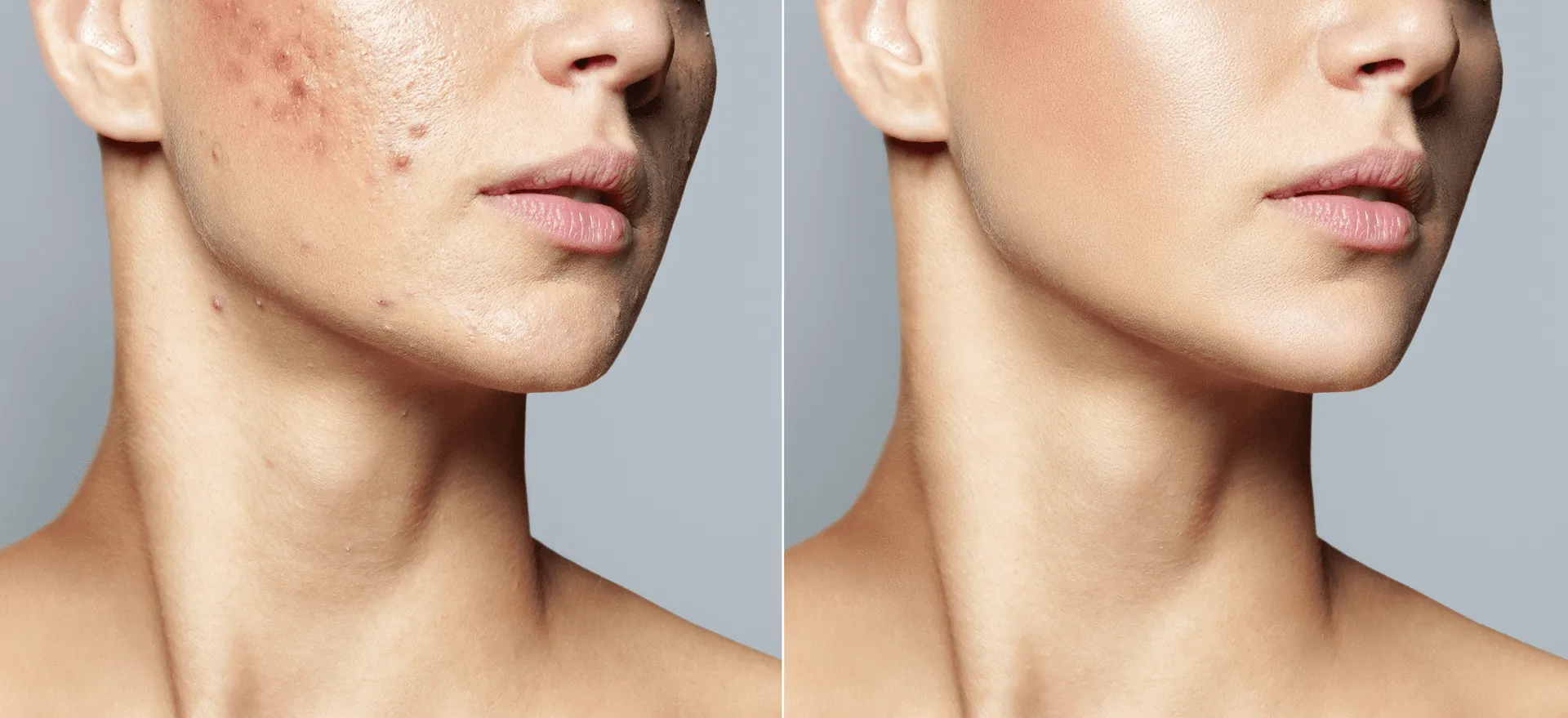One of the most unwanted skin conditions is acne, and one of the main reasons is the possible scarring this can cause, not only in the face but also in other areas of the body.
Can acne scarring be prevented?
Yes, it can be prevented, and here you have some recommendations:
Choose skincare products according to your skin condition:
- Avoid all kinds of heavy products that can clog your pores, like shea butter.
- Only use non-comedogenic makeup or makeup that indicates it can be used in skin with acne.
- You must always consult with a dermatologist as soon as you notice changes in your skin, especially acne breakouts.
What are the types of acne scars?
· Boxcars: Usually found in cheeks. They are known for present depressions with defined edges.
· Ice Pick: They present narrow depressions commonly on the cheeks.
· Rolling scars: Makes the skin surface uneven, giving the appearance of waves.
· Post-Inflammatory-Hyperpigmentation (PIP): Are the darker patches of skin you can see around the acne lesions. They are not considered scar themselves. Most of the time, it can improve by itself; however, it can prevent future definitive pigmentation.
What are the most effective acne scars treatments?
Lasers Treatments like CO2, fractionated lasers, ND-YAG 1064, and Pico laser can improve this condition. Before choosing them, many factors like age, other skin concerns, type of skin, skin photo type, and type of scars must be considered; not all of them can act the same in all skins. Some of these lasers will improve the scarring and improve pigmentation and even fine lines and wrinkles. Another factor to consider is your practitioner training and the number of sessions needed.
· Microneedling: Consist of controlled skin damage with a device with multiple tiny needles and in occasions can be combined with Plasma Rich Platelet (PRP) for further results. This will increase collagen production. After a few sessions spaced between a couple of weeks, you can notice the improvement of the scarring. During the next days following the treatment, sun exposure must be avoided to prevent pigmentation.
· Microdermabrasion: Using a device with a diamond tip capable of causing suction simultaneously, a deep exfoliation is caused, helping to improve superficial scaring and even pigmentation.
· Dermal Fillers: They can be used to treat individual deep scars; they are known for replacing lost volume in specific face areas.
· Chemical Peelings: The most used peelings are the ones that involve glycolic and salicylic acid. Besides, scarring can address pigmentation and fine lines. Another product used to treat these lesions is Trichloroacetic Acid (TCA), offering amazing results.
· Topical Products: Tretinoin is one of the first options; retinoids and antibacterial products like Benzoyl Peroxide can prevent future breakouts.
· Subcision of scars: This technique involves removing the whole scar and later stitching the skin together.
Can everybody have those acne treatments?
Most of these treatments can be effective as long as the person doesn’t have active acne lesions. If the person is suffering from a breakout, the main treatment should address the active lesions first. A full consultation is recommended with a specialist to determine the most effective treatment and prevent further complications.
Interested in ACNE treatments? We offer ACNE treatments in New Jersey, in our Medical SPA in Highland Park.
Call us to schedule appointment at: (908) 227-7544







